To the north of Valencia is the hilltop town of Morella. Our guide suggested there were good opportunities for walking around the area and this most picturesque of villages.
The night before had been blustery, and quite scary driving Dora. We had hoped to reach Morella, but as the wind kept pushing her big fat bulk sideways we stopped early in the small village of Vilanova d’Alcolea.
A reasonably early start, so we reached Morella early, an incredible landscape, with Morella jutting out on a large rock, castle perched on top. Today we would explore the village and maybe a short walk, but our first stop needed to be the tourist information to explore longer walks for the next couple of days.
It was our intention to leave Dora, walk to a local village, stay overnight and then walk back via a different route- but that is for a different post.
The village is extremely quaint, no traffic, small pedestrian streets and today, a small market.
Also there are plenty of tourists swarming about.
Lots of thin, narrow streets, steps and ramps connecting the different levels of the steeply sided town.
The town has its on pastry, sweet Cornish pasty, filled with almond and mild cheese, called flaons. We popped into a crowded bread shop to pick some up together with our lunchtime pan.
We zigzagged up the streets, gaining height. Our next objective, the castle.
The trees had recently had a hair cut, they look like abstract sculptures, man in control of nature. Health and safety to ensure no errant branch gets blown down; they would have done today. The wind is still strong. In the town it is tempered, but as we get higher you can feel its effects.
We pass the main church, no interest here, so we move on.
A cool, ceramic tiled domed roof, glistening in bright blue looks great against the pale winter sky.
We eventually get to the castle. The wind is really taking effect now. We think the glass entrance doors are automatic, no they are just getting blown open. The ticket seller must be freezing. A cloister beyond is partially derelict.
The castle is obviously part of a continual restoration project. Parts of the walls have been repaired, while other areas are still a jumble of rocks. There is only a short explanatory text, but the entrance fee of €3 is good value.
The climb to the top is never ending and steep.
But as you ascend the views across the landscape just get better and better.
A small bull ring which we missed on the way up hidden amongst the town’s buildings.
Higher and higher, each ascent and the wind gets stronger.
We take shelter in the odd building which has survived the ravages of time.
We eventually get closer to the top. Now the wind is so strong we have to fight to ascend the roughly cut stairs.
The views are incredible, but the wind is unrelenting, there is no escape from it. Even within the building it seems to find you.
The cloisters are now far below us.
As is the town
We take relief from the wind and quickly head back down.
Not sure how far or accurately the canon would have fired in this wind!
We find the chapel close to the entrance. It is also under renovation and has been stripped of all the usual paraphernalia. The space is dramatic in its emptiness. Also the incredible arch, unsupported, spanning maybe 6-8m, very shallow and delicate. Not sure it would support much. Not sure what it is for.
And the other end, simplicity, letting the light and material do the work. No gaudy ornamentation.
Away from the castle and we are making our way back to Dora. We find a small garden dedicated to some local poets, cute.
Clinging between the streets.
Back in the high street and Susana is impressed by the ‘soportales’ colonnade, providing shade in the harsh sun, quiet now the tourists have escaped for lunch and the shops are closed. It is Sunday, but here the shops are open to serve the tourists.
Dora is clutching to her car parking space. It is an exposed part of the town. The wind is whistling past and through her. It will be a rocky lunch. We will have to find a quieter spot tonight or we are unlikely to get any sleep.
After lunch and we try out one of the tourist office’s walks. It is only short and tracks around the base of the town. This way we will get to see the enclosing walls. It might also be a bit more sheltered as the wind is still strong.
The walls are indeed impressive, punctuated by regular towers which are unfortunately closed to the public. It would have also been nice to walk around the perimeter walls, which is also not possible.
There are also various gates, doors into the town each named after the village they come from or go to; Forcall we will get to see tomorrow, a village maybe ten kilometres away.
The path is well signed by the usual red and white slashes. The path starts to gravitate further away from the village. Parts of the slopes are used as allotments, or for pastureland for goats and sheep, some has small orchards.
Other parts are left as barren landscape.
You can hardly see the village now, high above you, you might as well be in deep countryside.
Then it comes back into view. We were up there, at the castle top a few hours earlier!
We head once again back to Dora. The village has an aire just outside town. Several motorhomes are clustered together, trying to seek shelter from the wind. We grab some water, but don’t fancy it here, too rocky. We go to look at some spots we saw earlier, on the south side of the town, outside the walls for a more peaceful nights sleep. Tomorrow we will leave Dora for that two day walk.
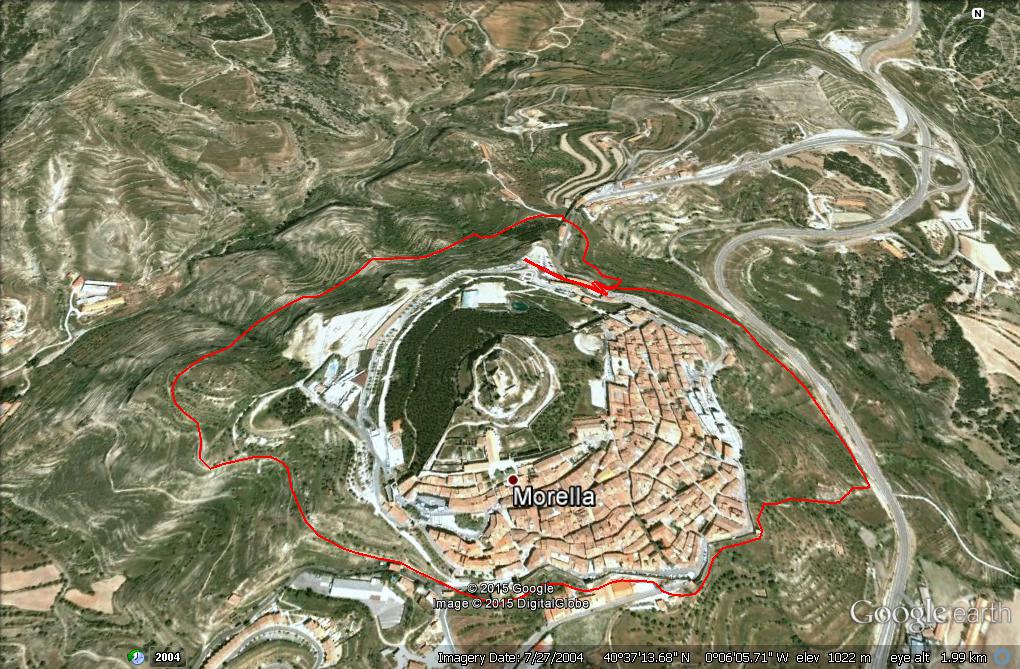
3.7 kms and 1.5 hrs
GDR

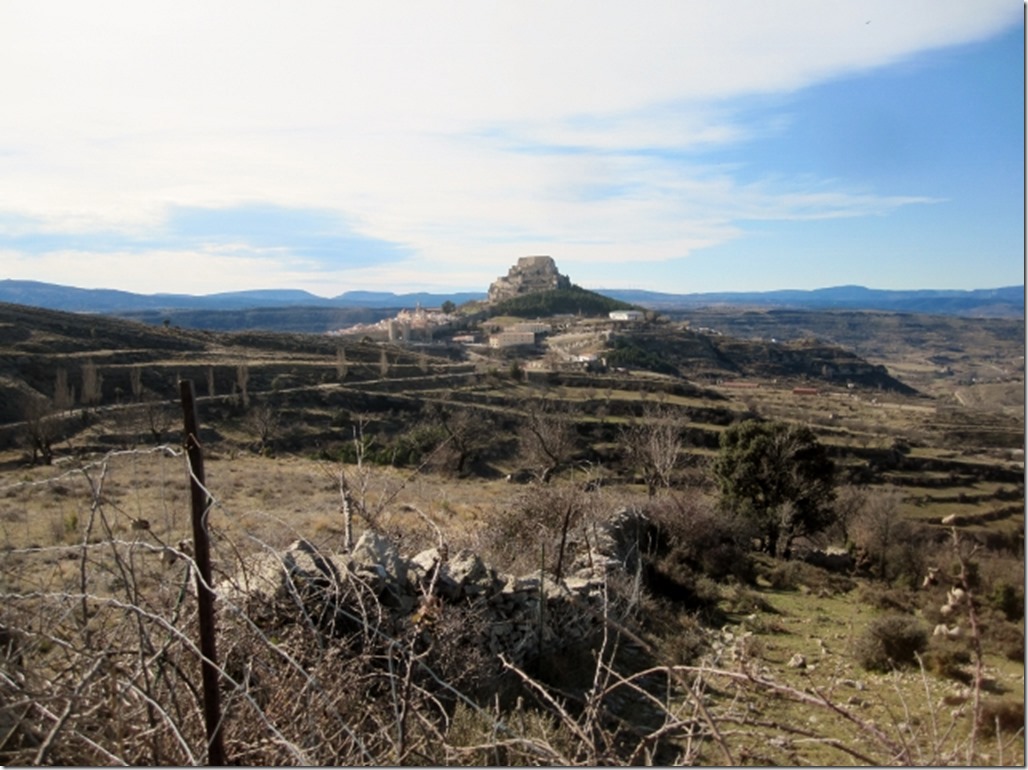
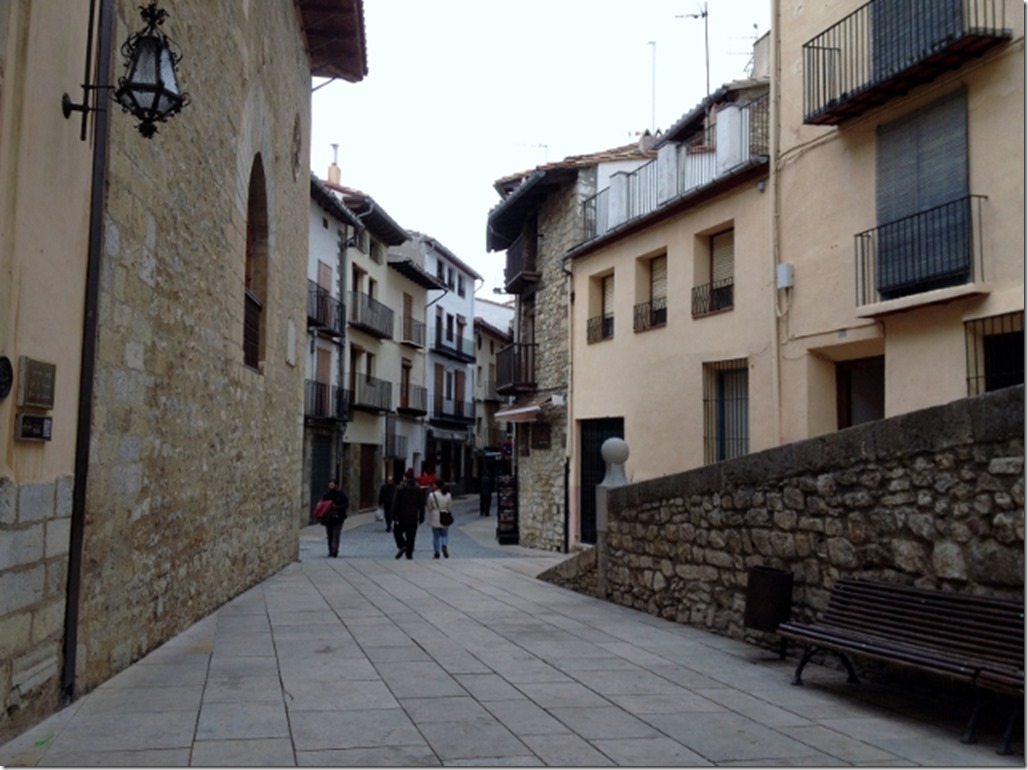
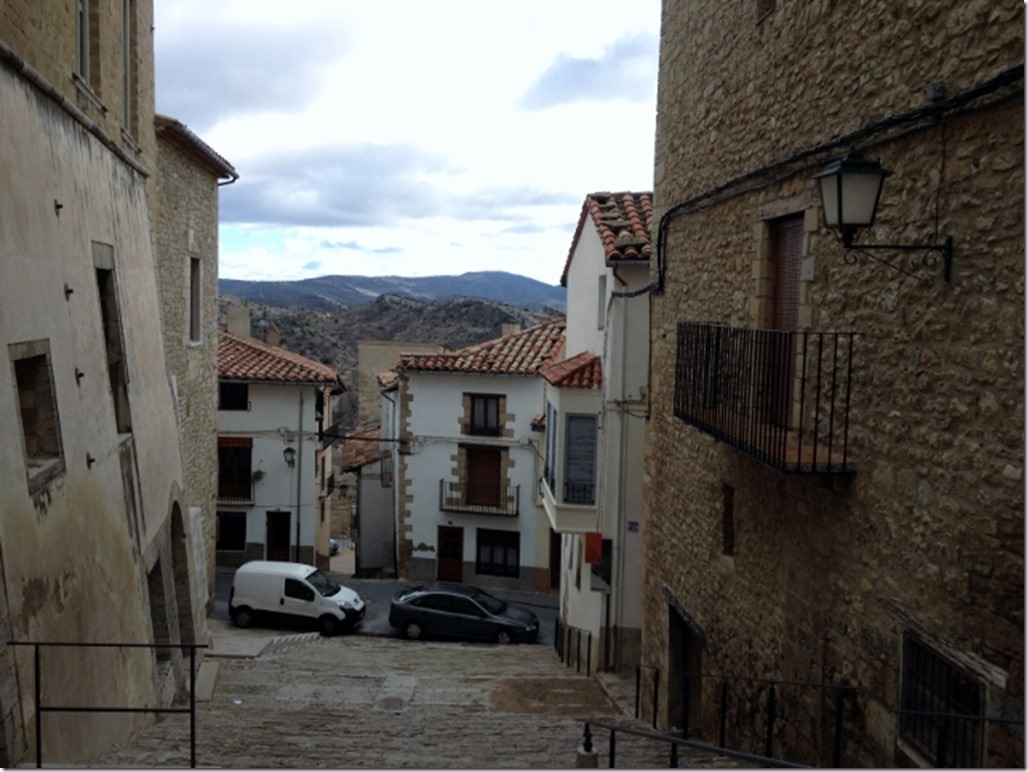
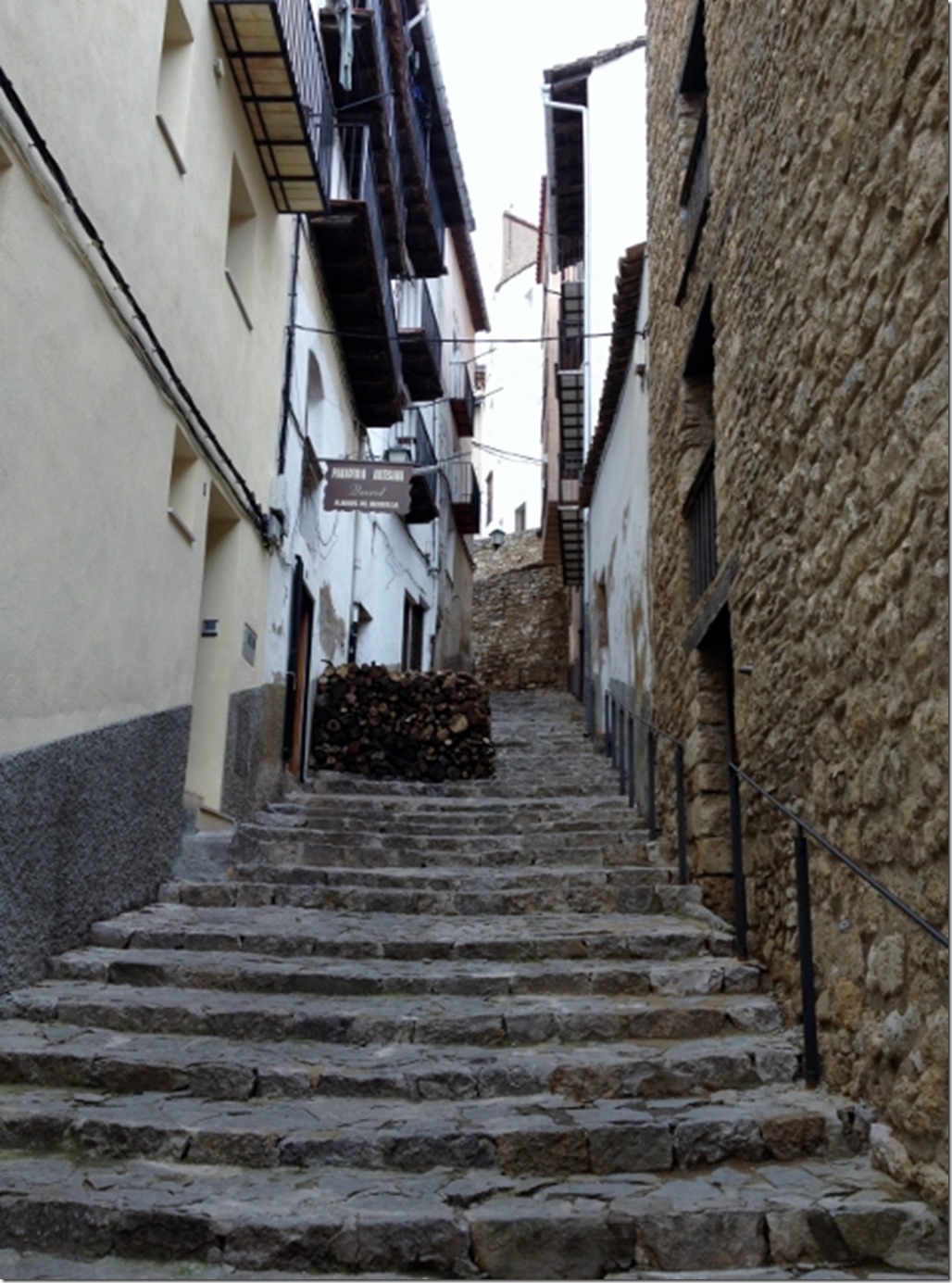
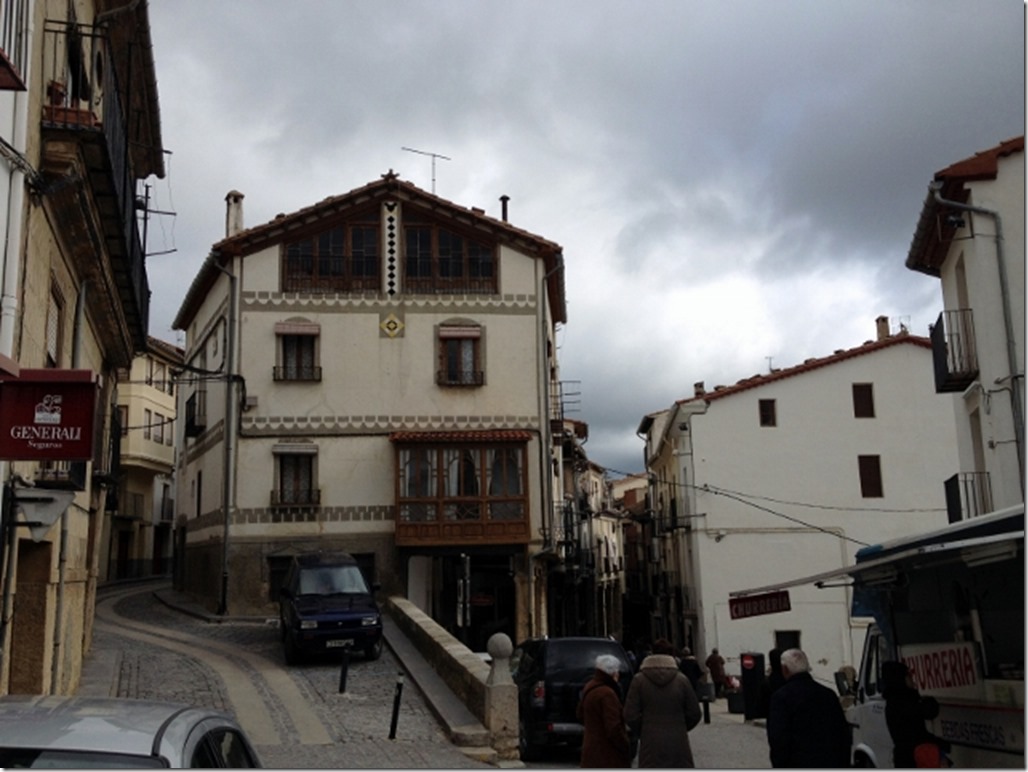
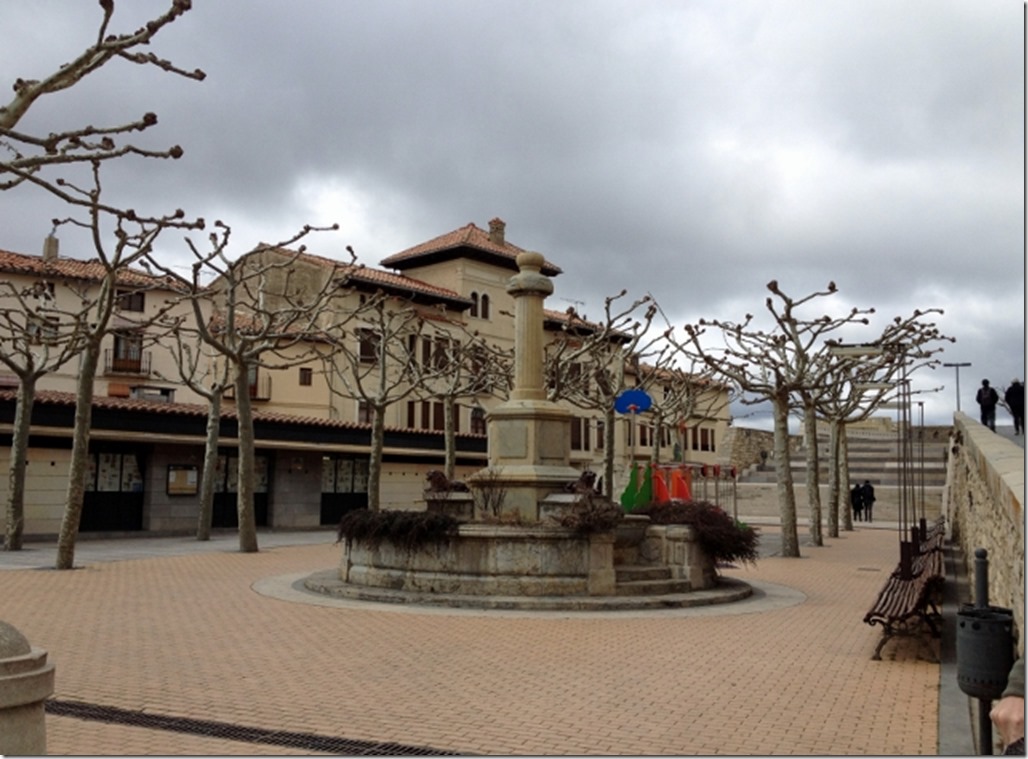
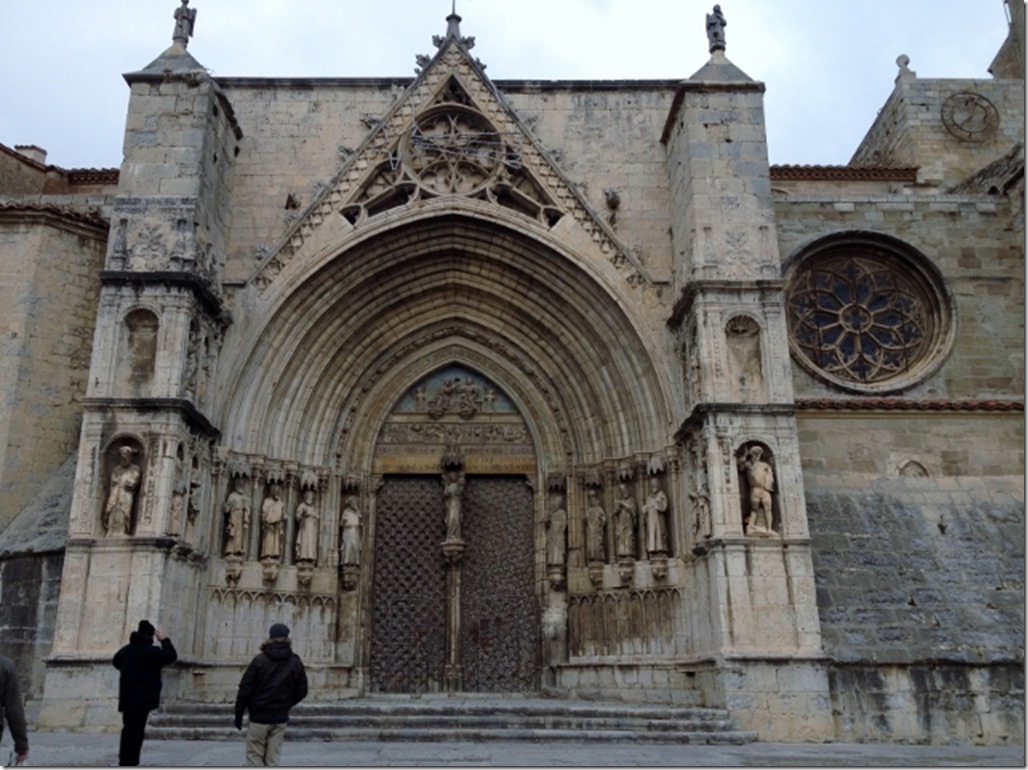
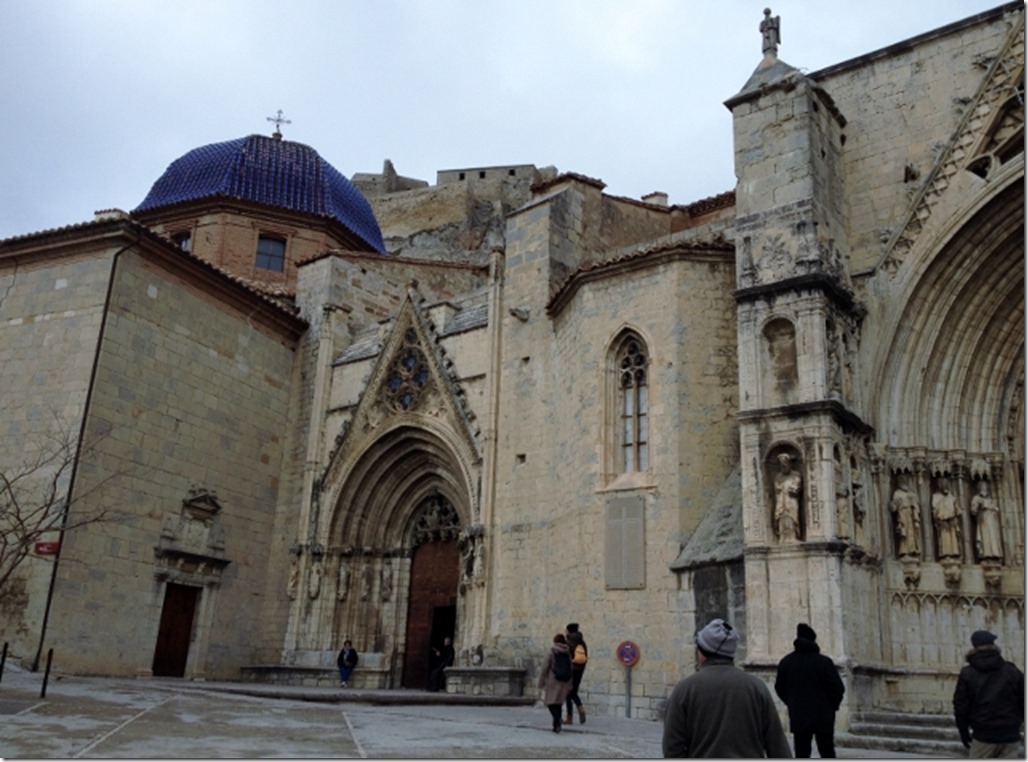
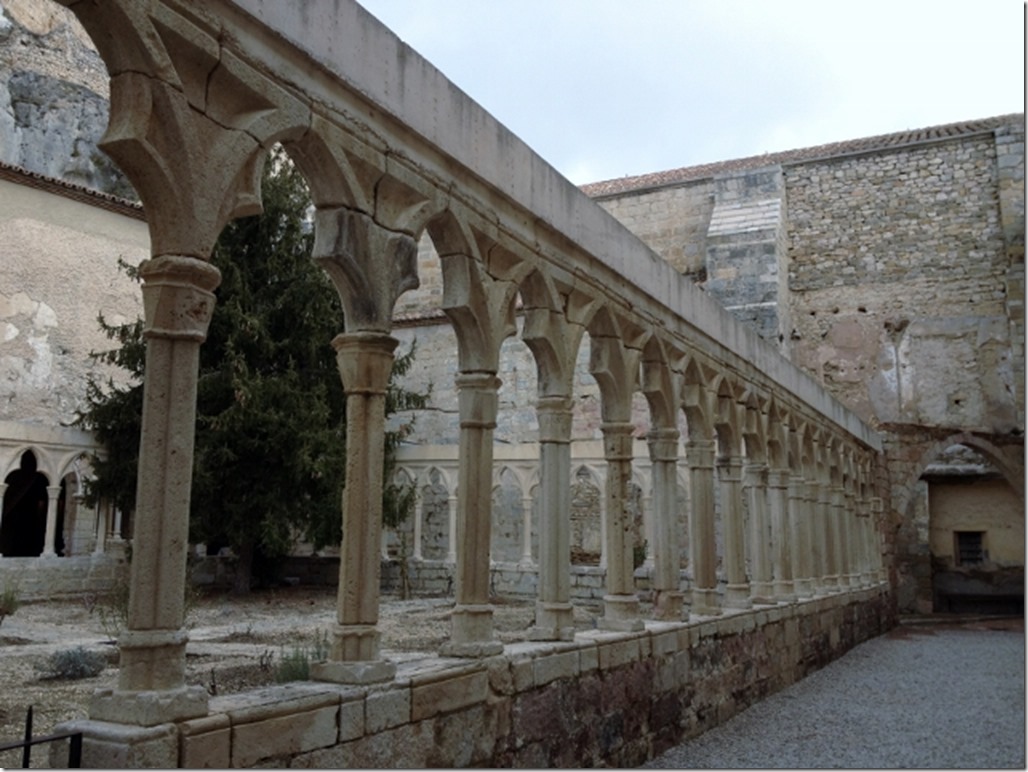
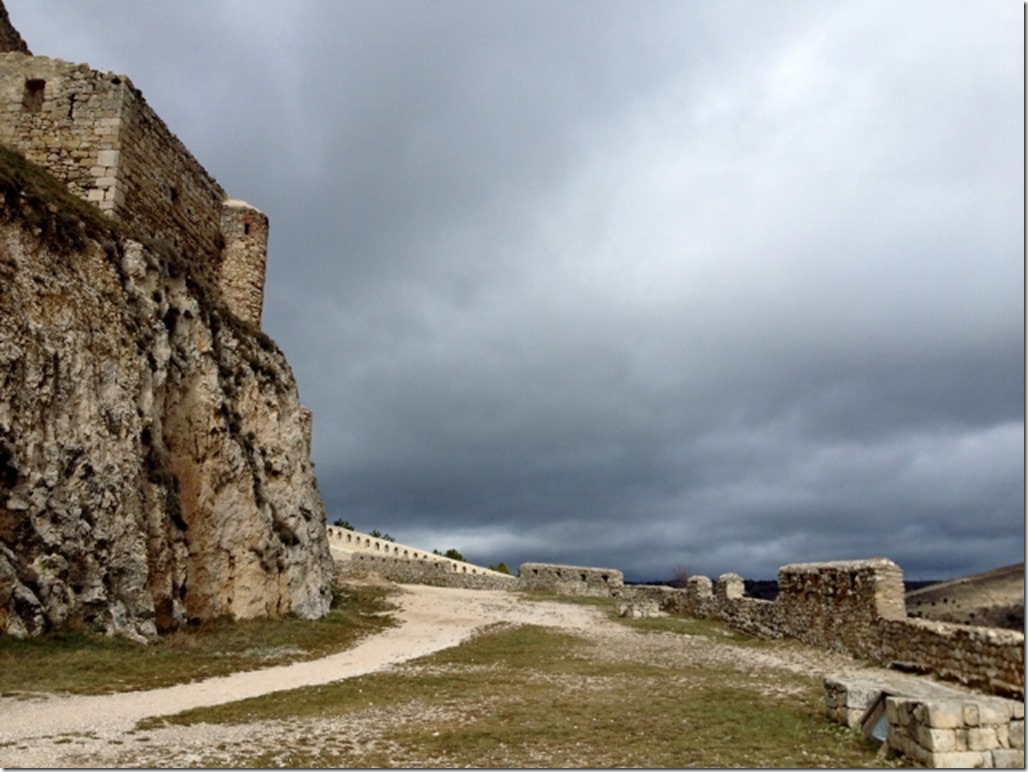
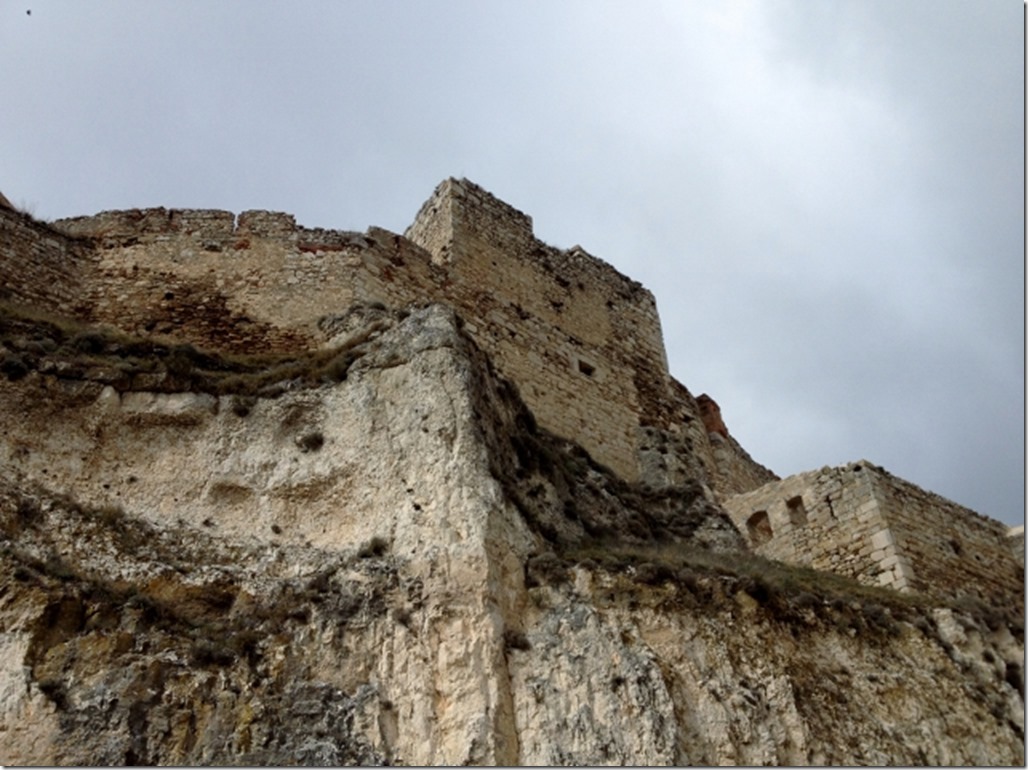
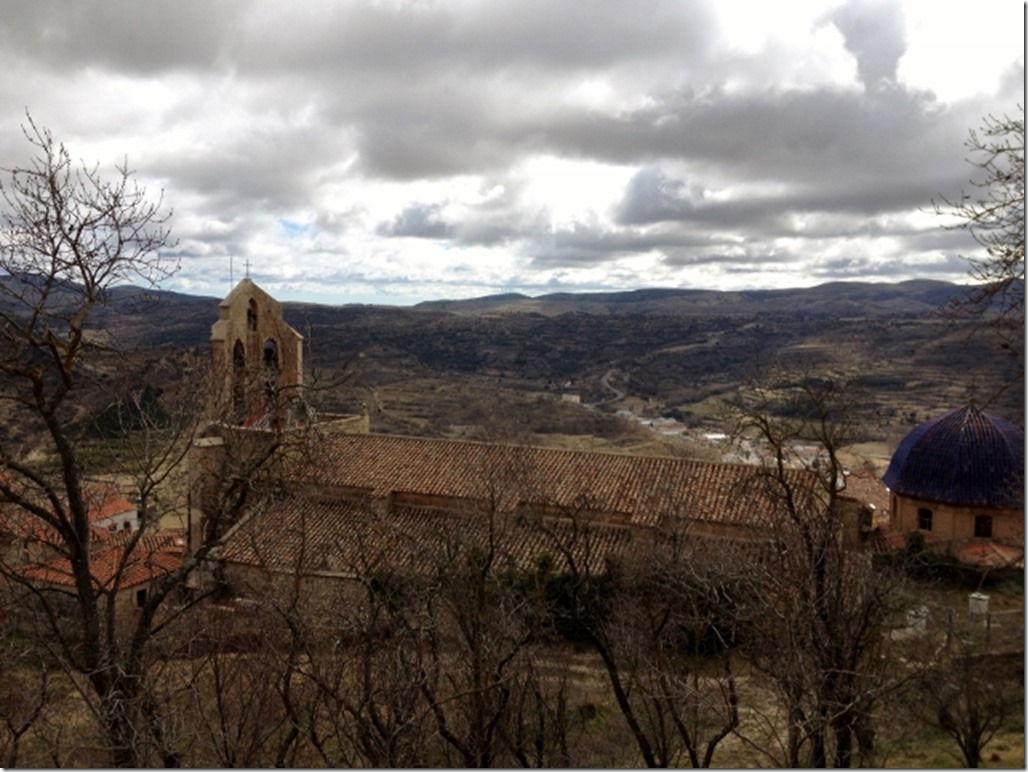
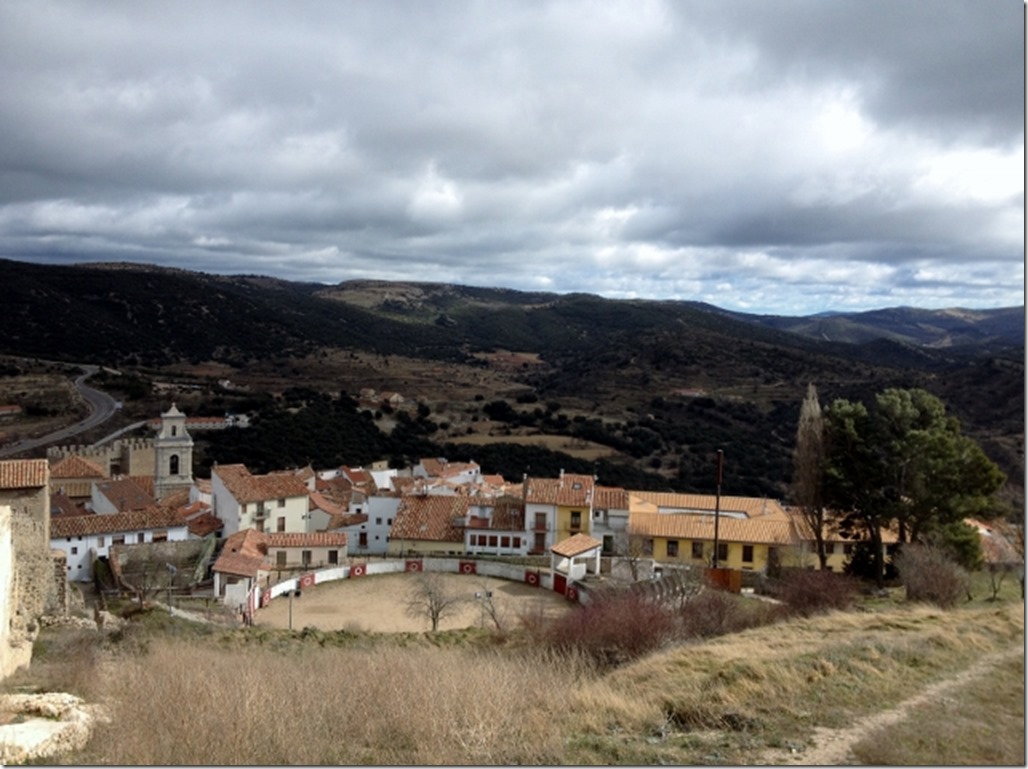
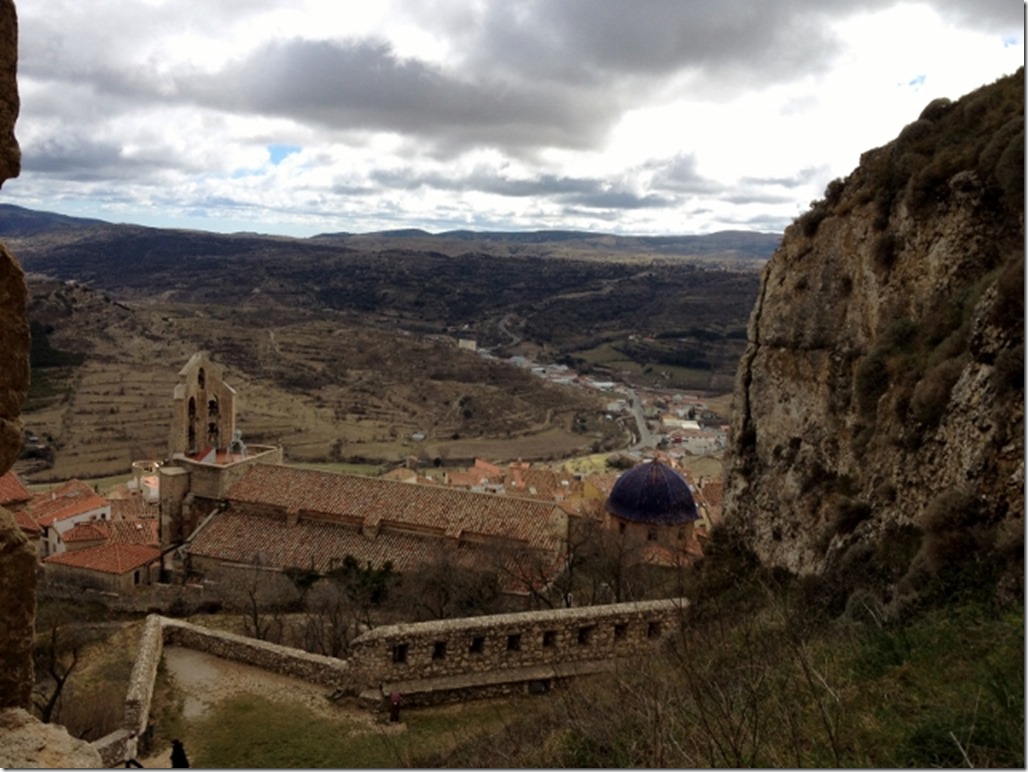
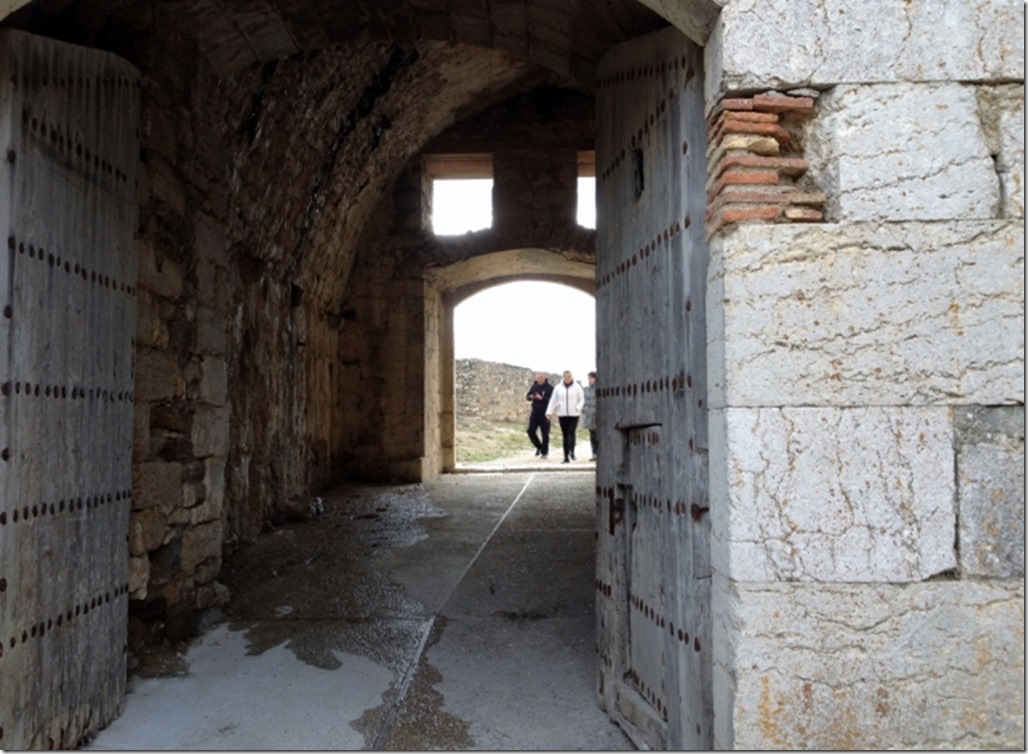
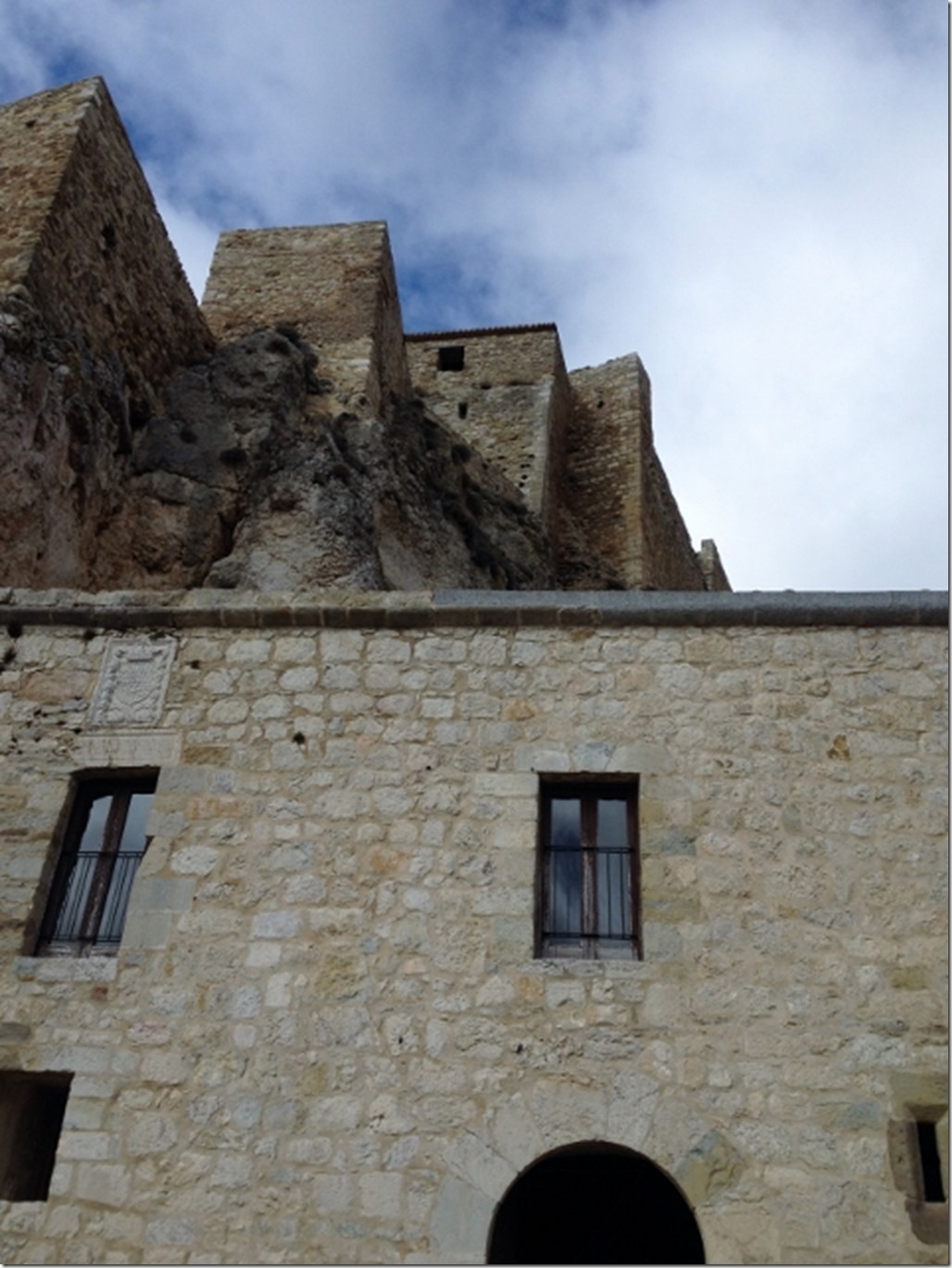
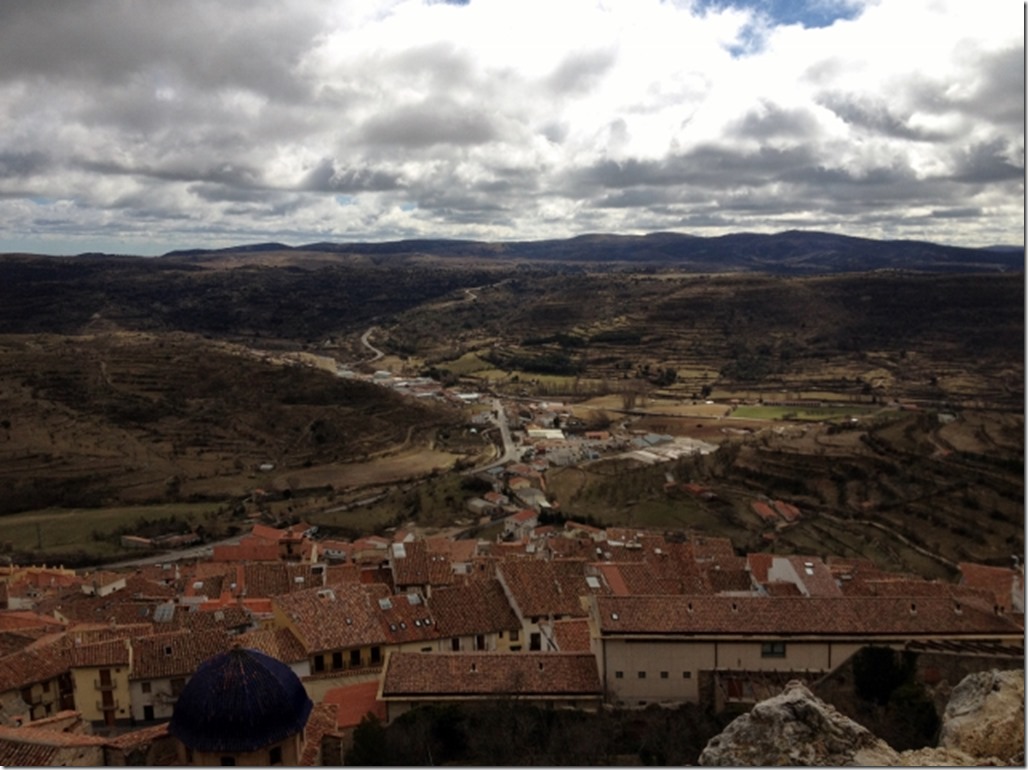
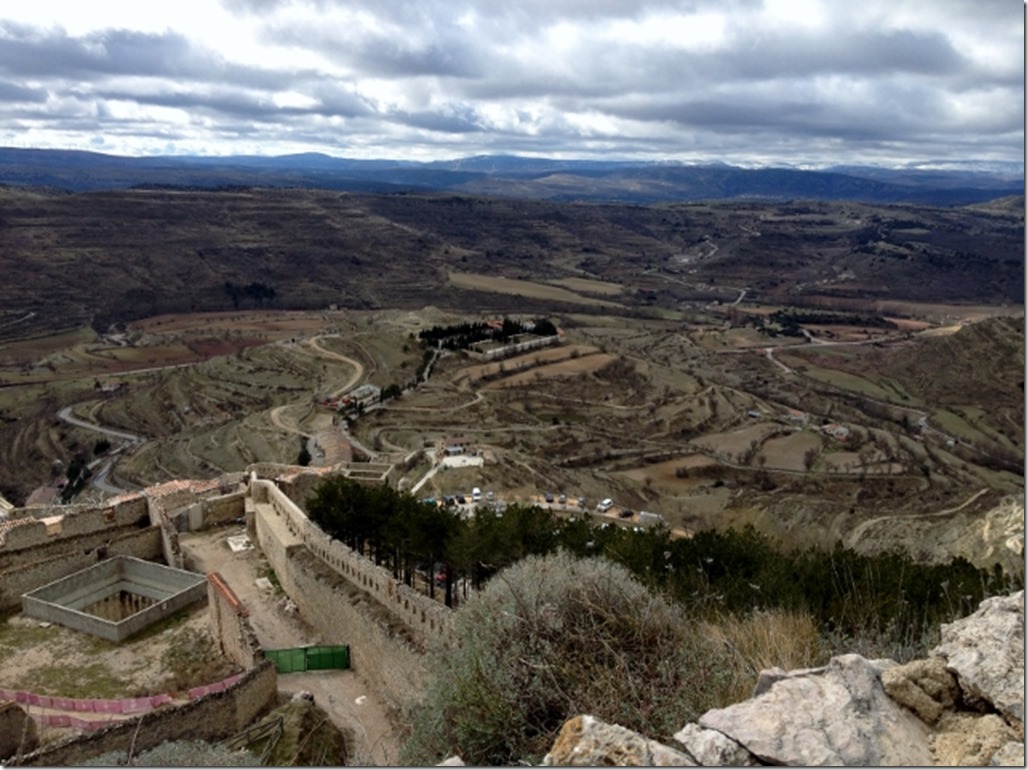
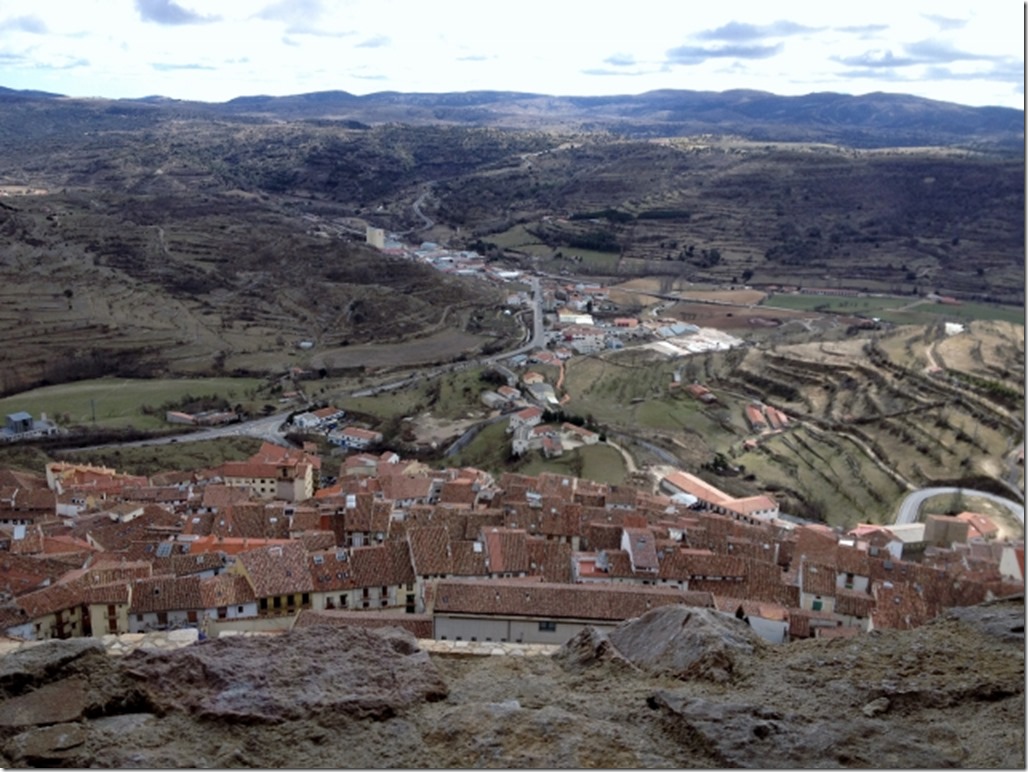
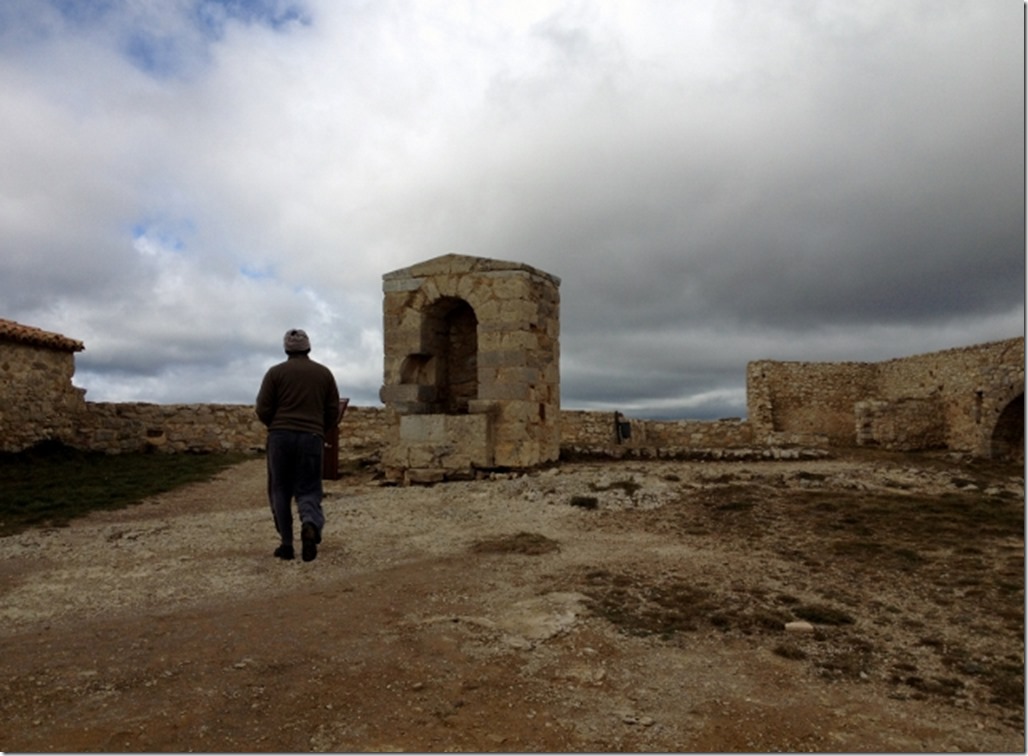
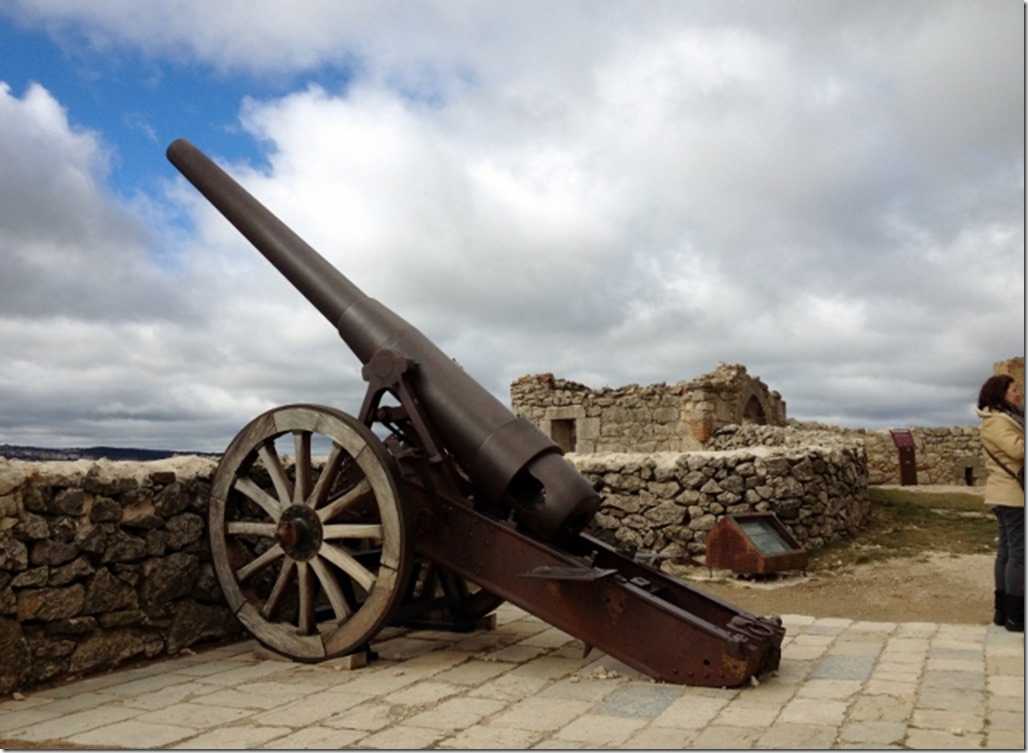
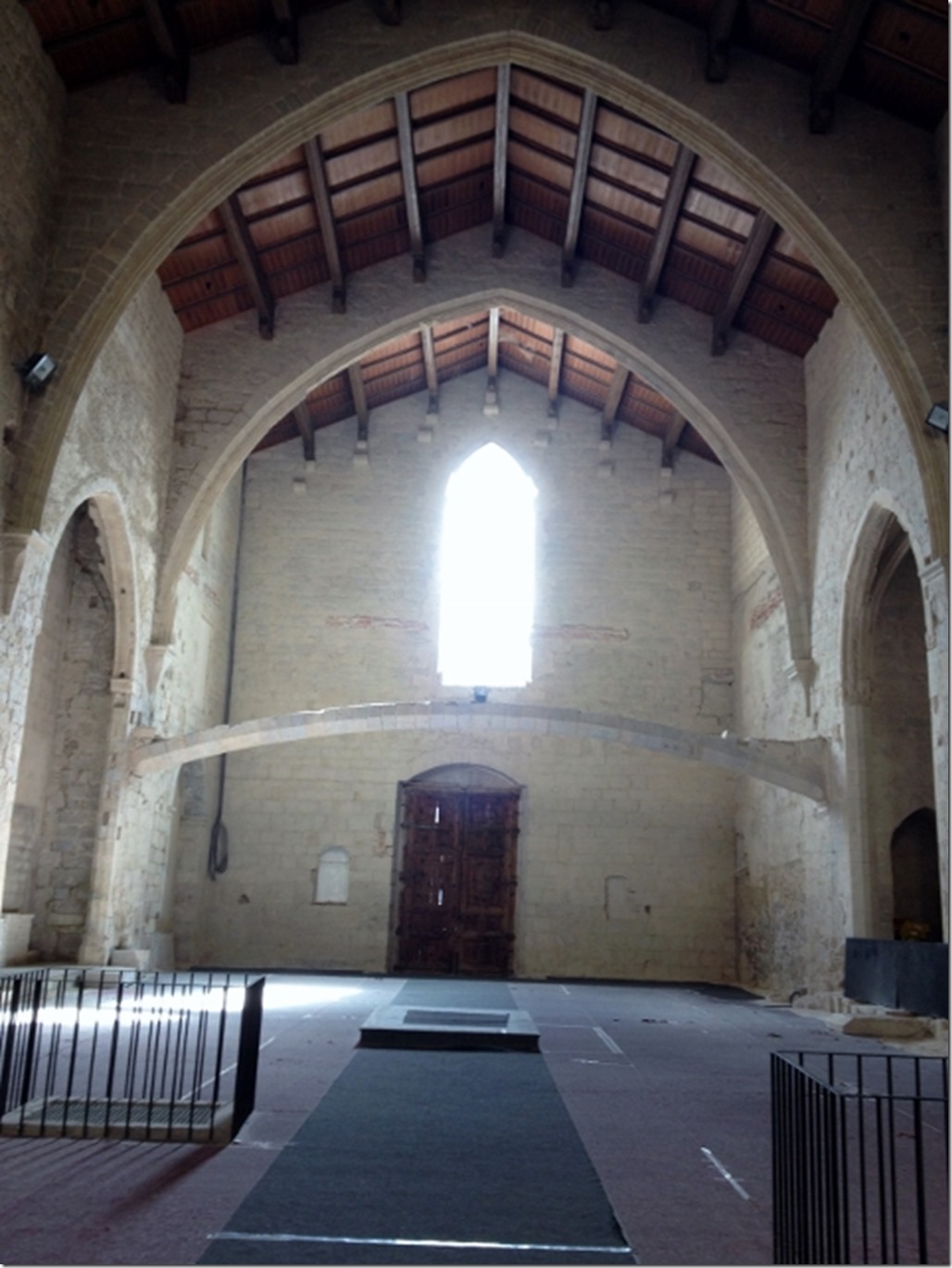
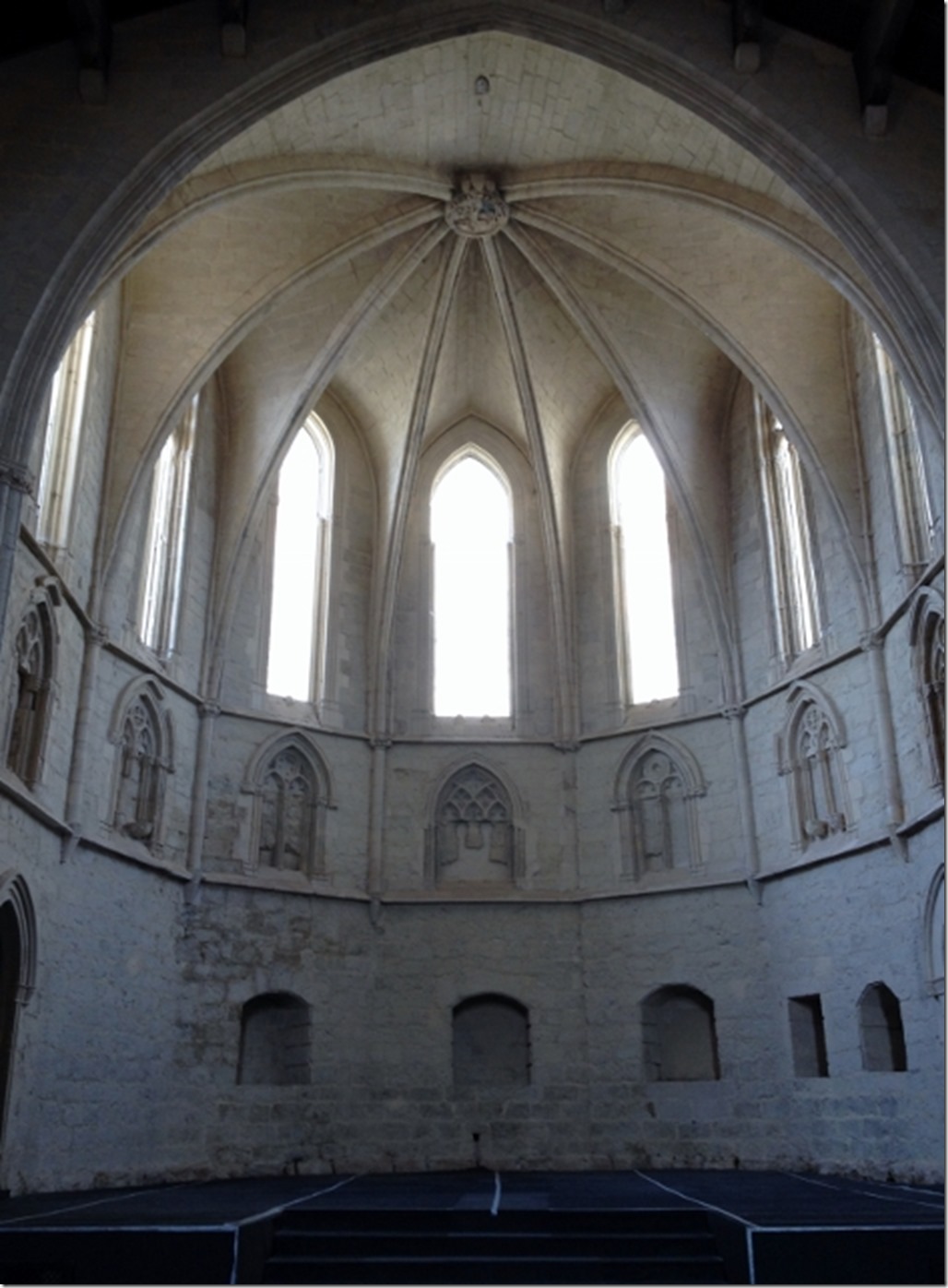
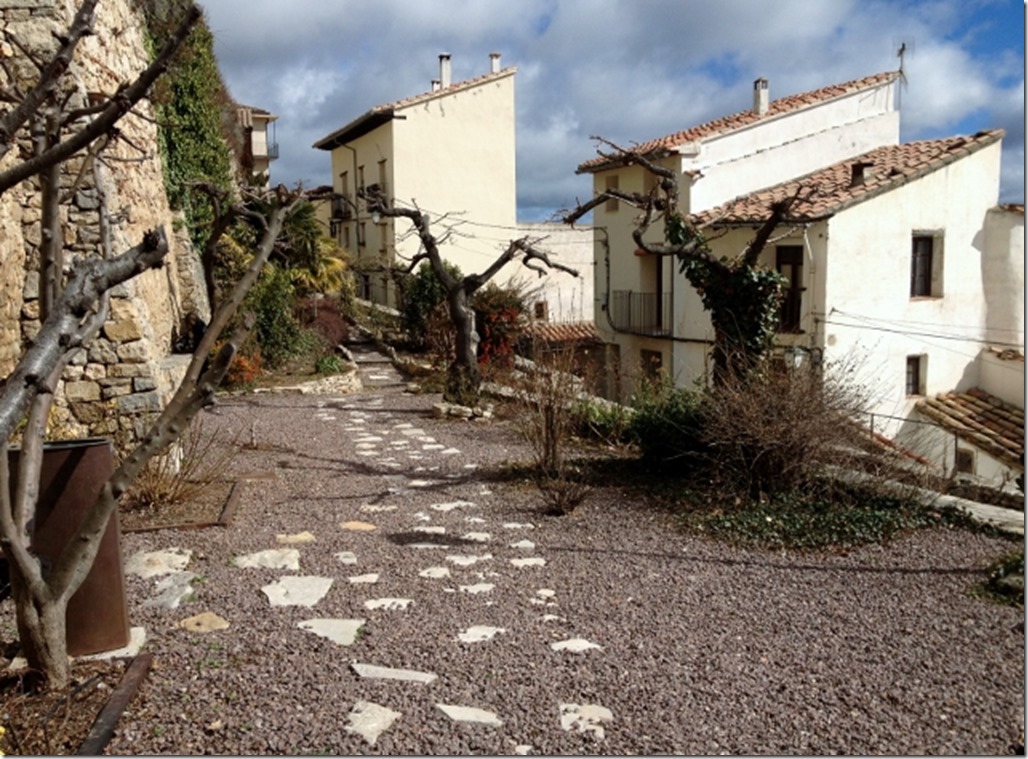
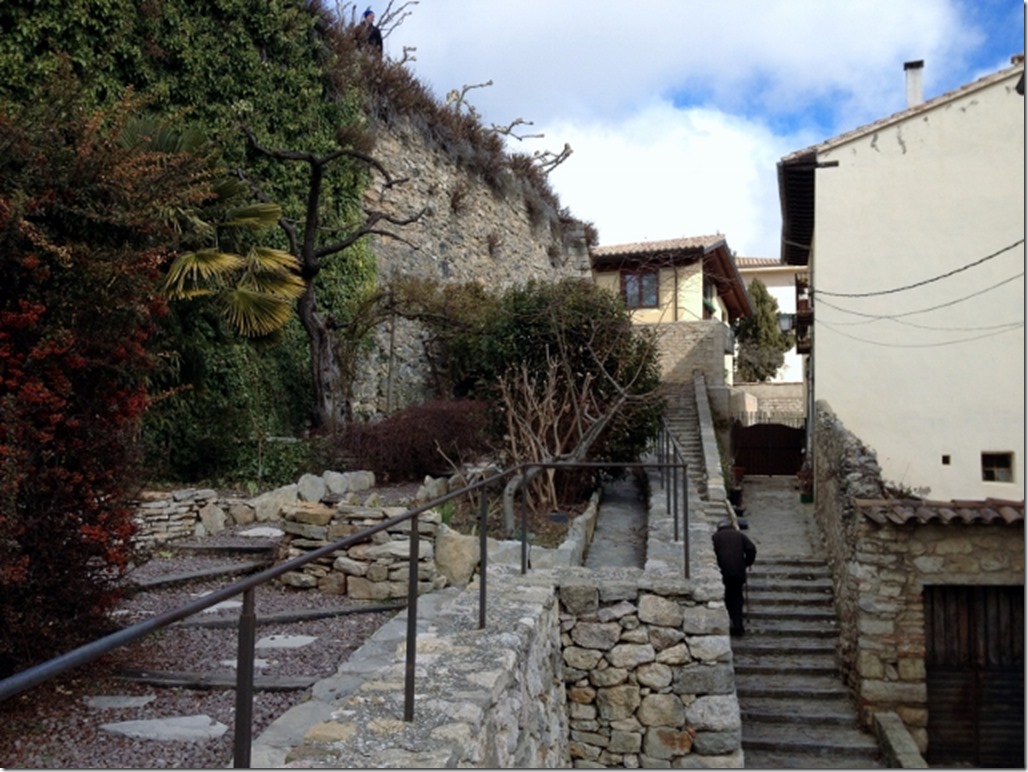
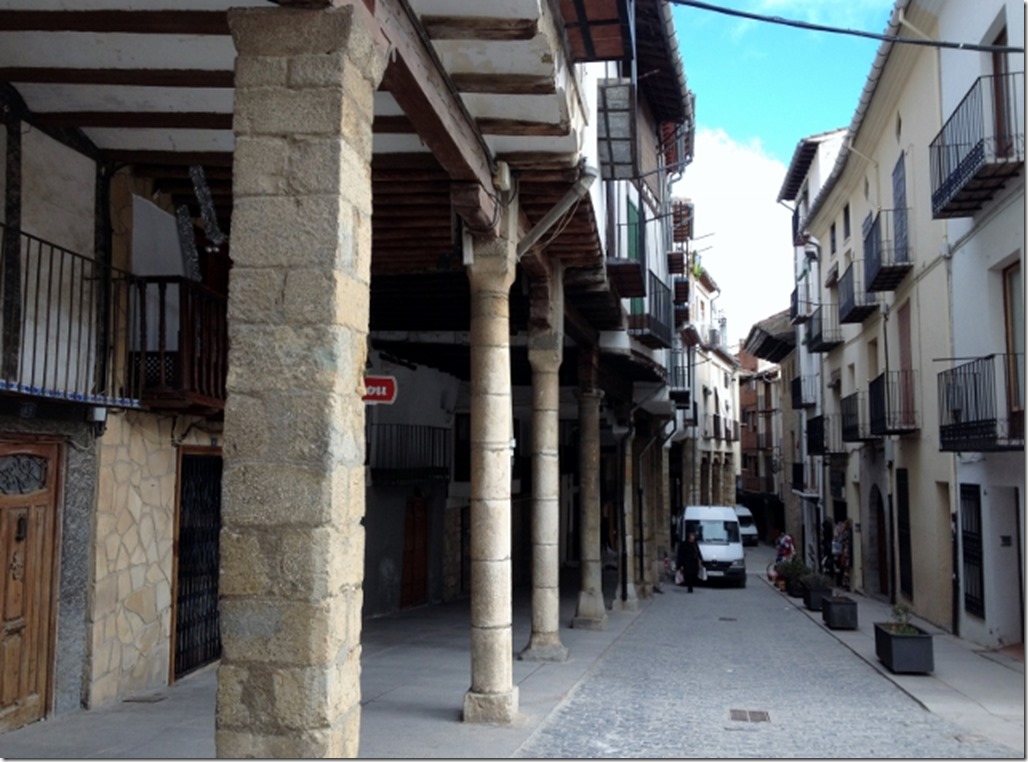
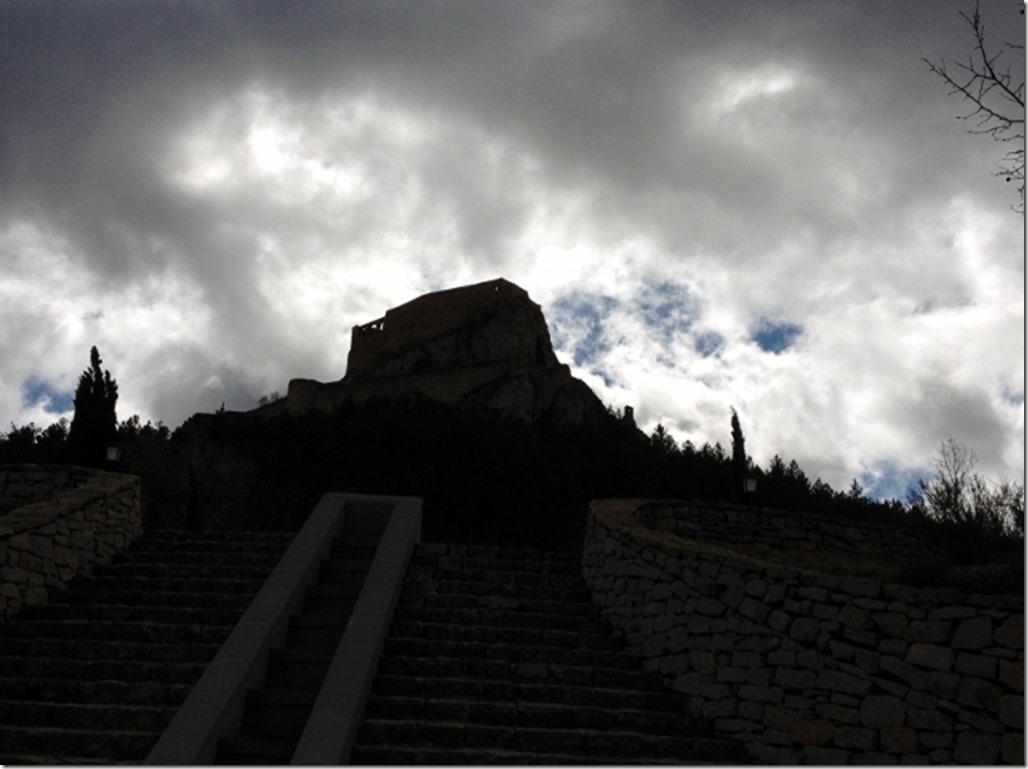
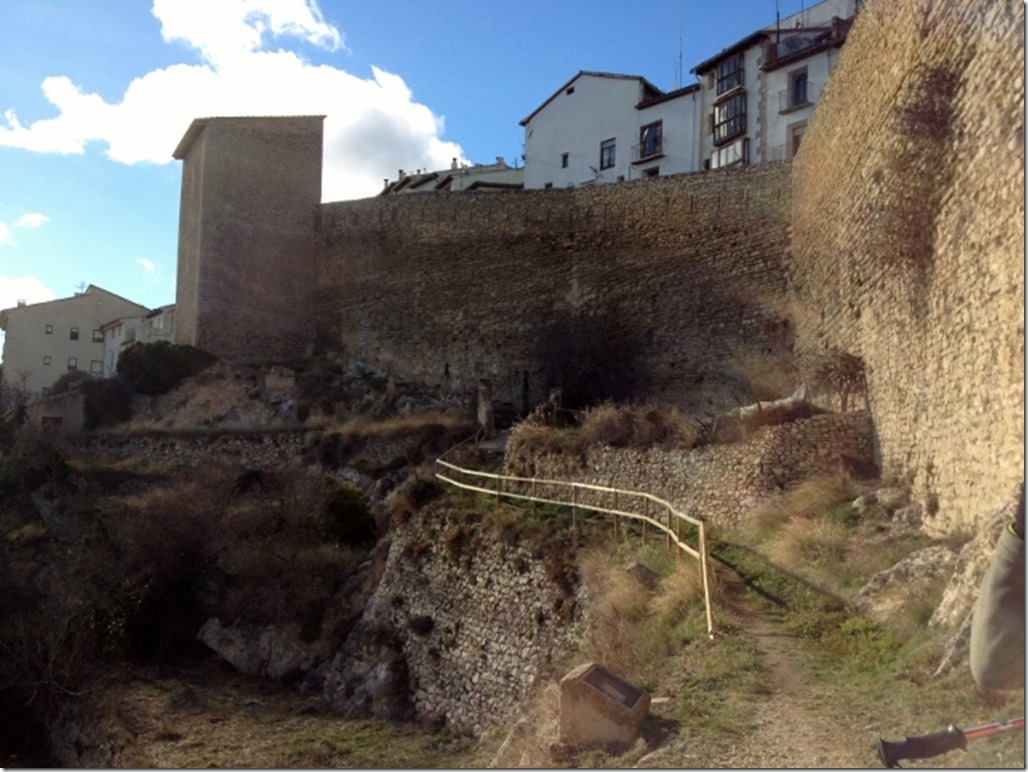
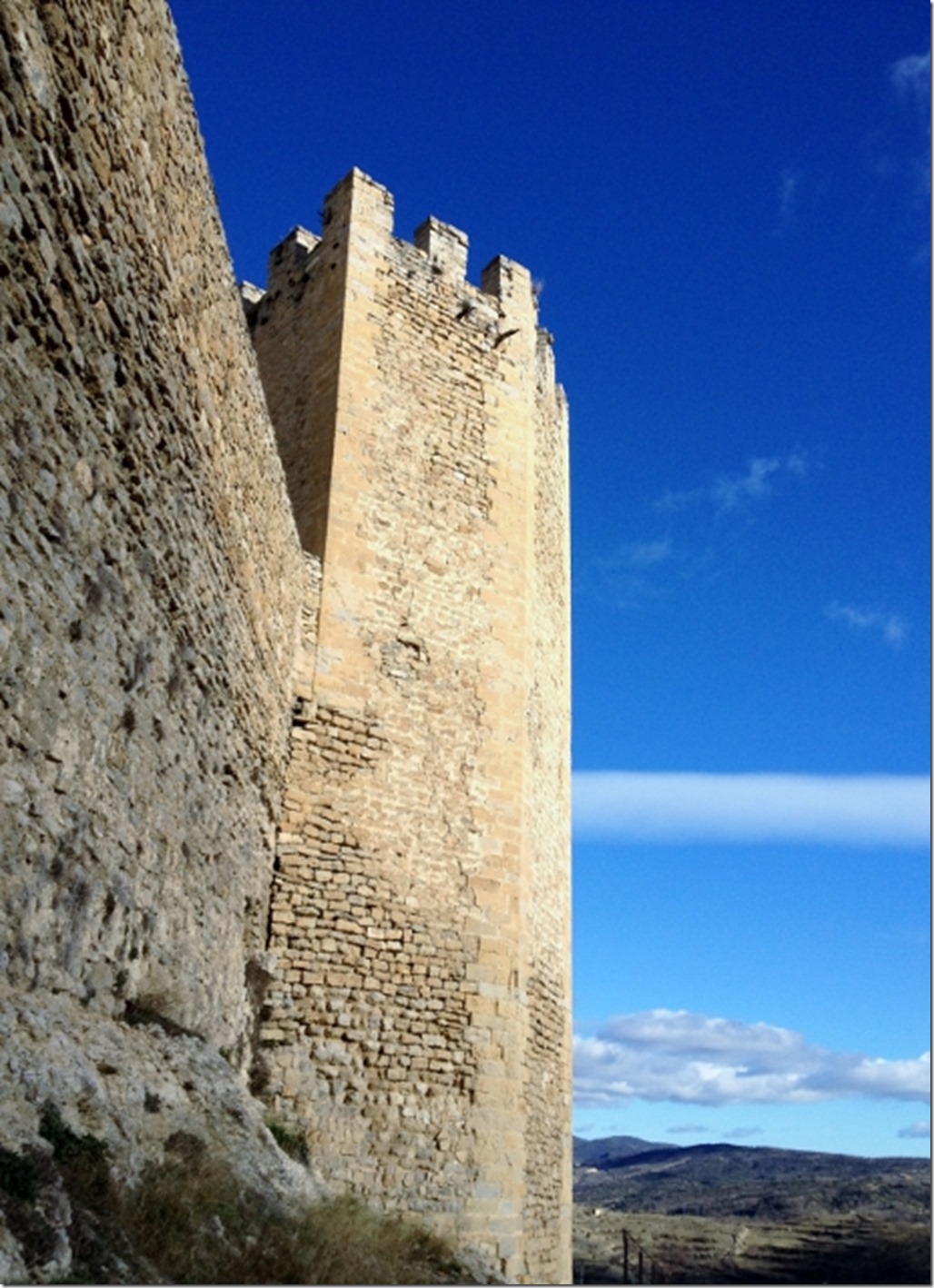
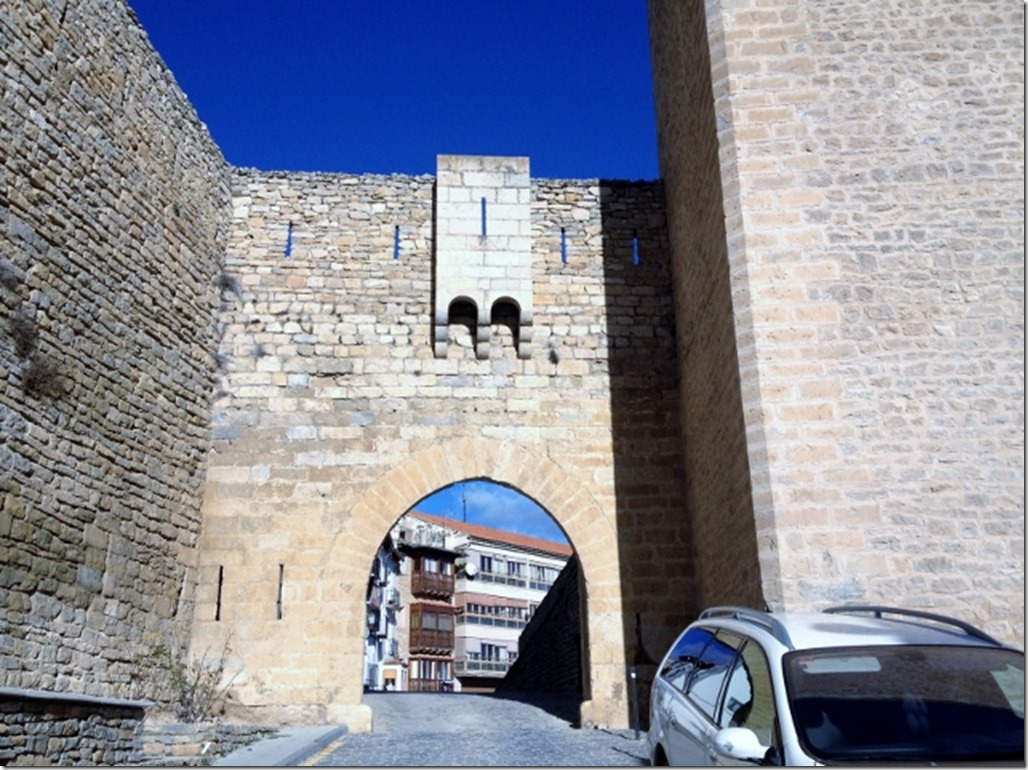
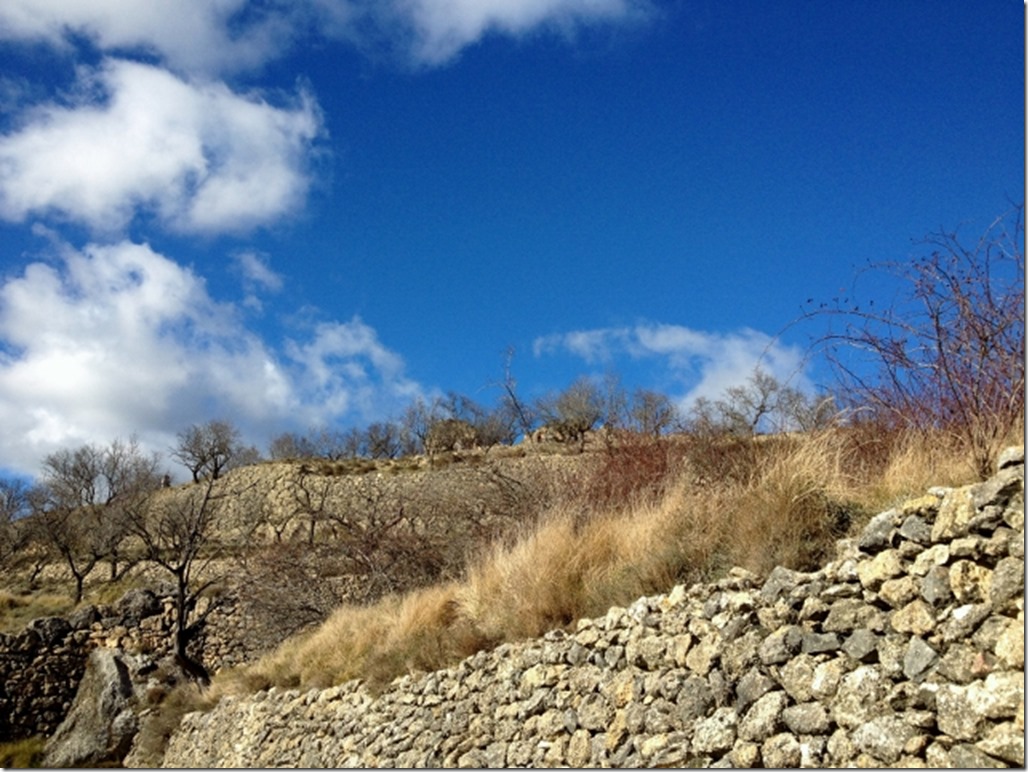
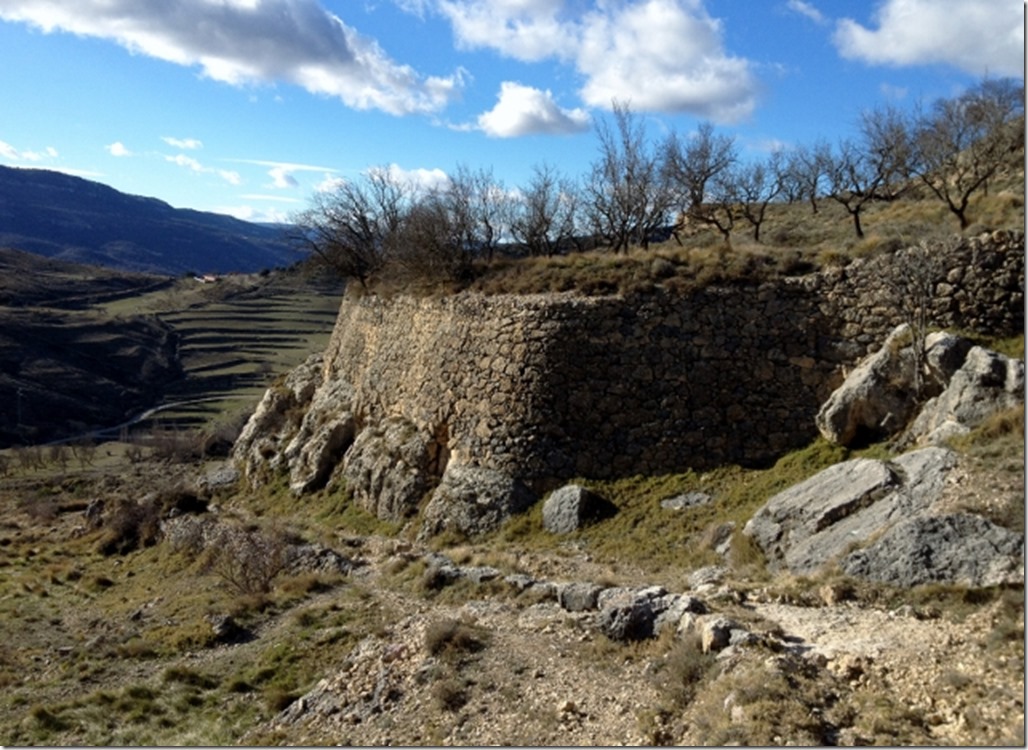
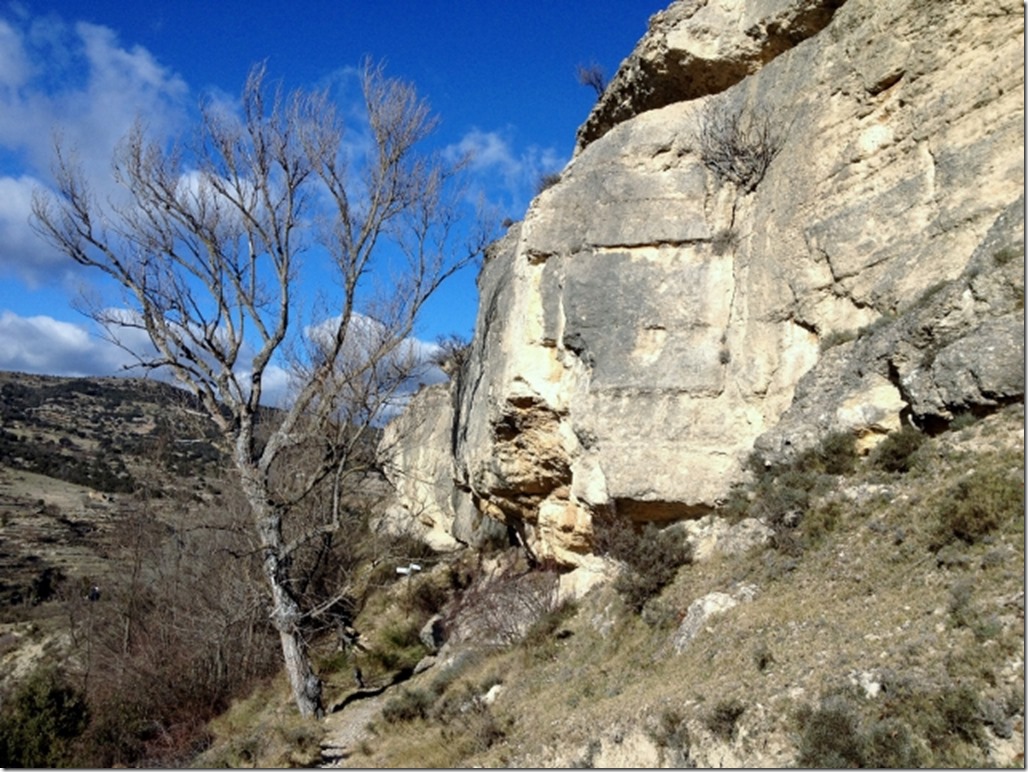
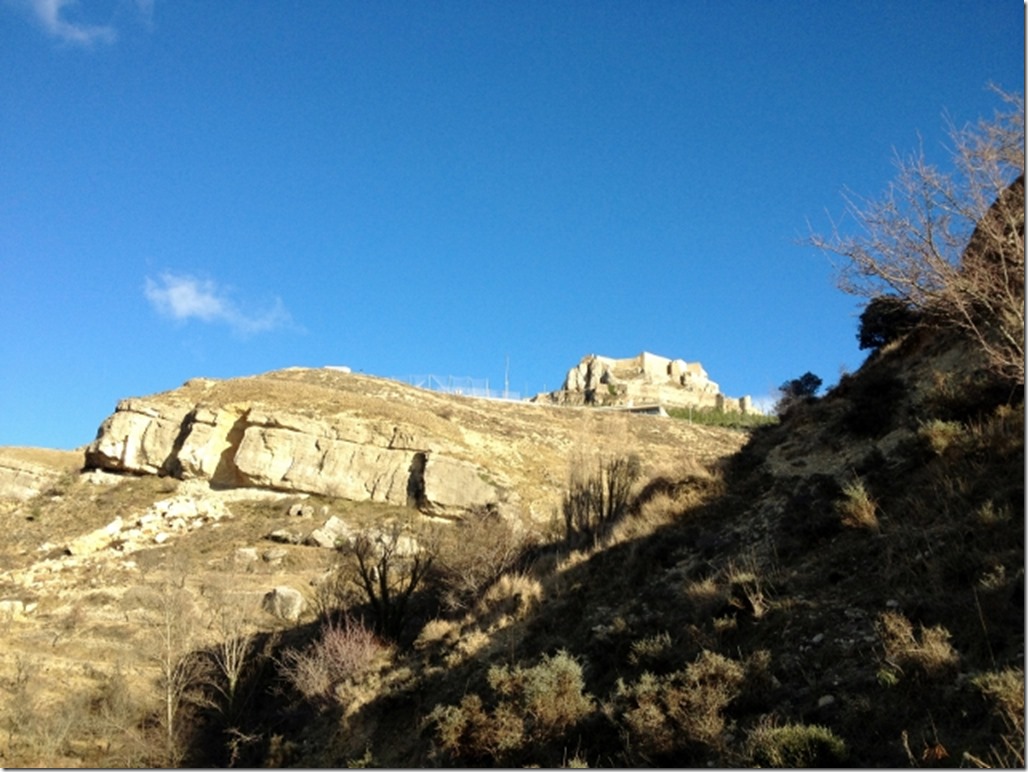






Que altura tiene el castillo?
No puedo imaginar cuando lo edificaron , que trabajo más impresionante.
Las escaleras de subida en el pueblo, tienen un parecido a las de Guisando, debe ser muy bonito , pero cansado de subir y bajar.
No se. Lo duro fue subir con ese viento de por lo menos, 10km/h
Stunning village, it reminds me of Guisando a little (minus the castle), have fun, XXX
Yes, glad we don’t get those strong winds